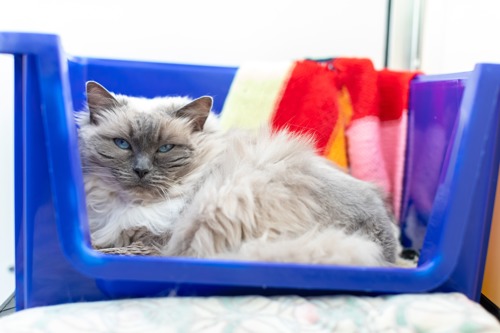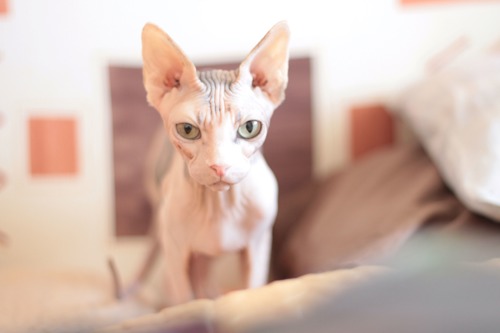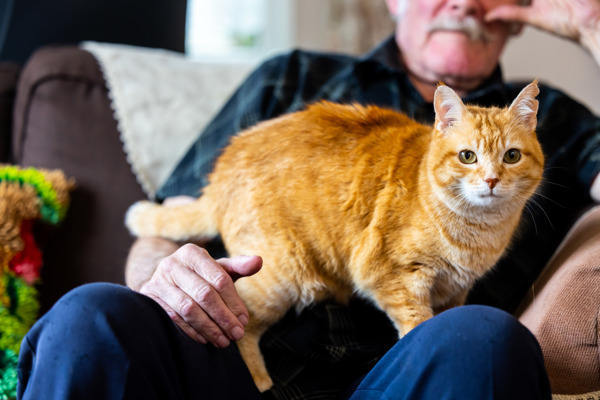Demand for pedigree cats is on the rise but what are the facts about common cat breeds?
According to the Cats Protection CATS Report 2022, the demand for buying pedigree cats over moggies has increased. 38% of cats obtained in 2022 were pedigrees, compared to 15% more than five years ago.
If you’re thinking of getting a cat, we recommend getting a moggy rather than a pedigree. We have thousands of moggies in our care looking for new homes. Each one is a magnificent masterpiece! But if you do want to get a specific breed of cat, then it’s best to do your research. Some breeds come with certain health and behavioural needs and can be more costly to care for. Find our expert advice about pedigree cats.
There are lots of myths surrounding pedigree cats, so to help you get to the truth, we’ve busted a few common misconceptions...
Myth: Ragdoll cats are always floppy and cuddly

Ragdoll cats are known for their long-haired coat, which they need daily help to groom. But many people also think that they always go floppy and cuddly when you pick them up. Hence the name ragdoll. But the behaviour of ragdoll cats is no different to that of a moggy. There’s no guarantee they’ll always be cuddly when you hold them. It all depends on the individual cat.
Myth: Pedigree cats should be kept indoors
Many people believe that pedigree cats should be kept indoors. Maybe because they are more at risk of being stolen. But most cats would benefit from being allowed outside. It enables them to get the mental stimulation and physical exercise they need to stay healthy. Whether they will be happy to stay inside depends on the individual cat, not the breed in general. If they are kept indoors they will need plenty of opportunities to play so they don’t get bored. Find out more about indoor cats.
Myth: Sphynx cats are hypoallergenic

If you’re allergic to cats, you might think that getting a hairless Sphynx cat would solve the problem. But this isn’t necessarily the case. There’s actually no such thing as a hypoallergenic cat. All cats produce the protein Fel d 1, which is the cause of cat allergies. This protein is in their saliva. When cats lick themselves, it easily spreads to their fur or skin. Even hairless cats will lick their skin to clean themselves. They then shed dead skin cells containing the allergen around your home. Find out more about cat allergies.
Myth: Buying a breed is a guarantee of personality
You might think getting a pedigree cat would be a good way of guaranteeing the type of personality your new cat will have. But don’t be fooled. A cat’s temperament and character depends on many factors, including:
- genetics
- their experiences when they were a kitten
- things they’ve learnt throughout their life
All cats are individuals. The best way to get a good idea of your new cat’s nature and preferences is to talk to their previous owner, breeder or the rehoming charity you’re getting them from.
Myth: Pedigree cats are more remarkable than moggies
When you search for ‘moggies’ online, the results define these cats as ‘unremarkable’, ‘ordinary’ and even ‘untidy’. But this isn’t true. Moggies are the perfect mix of everything we love about cats, with a huge variation in their personalities and appearances. If you adopt a moggy from Cats Protection, we’ll find the perfect match to suit you. We can guarantee they’ll be adorable! We’ll provide you with as much information about their personality and care needs as we can. Plus they’ll be vaccinated, neutered, microchipped and come with four weeks’ free insurance, all included in the adoption fee. This makes them much more affordable than most pedigrees. Find a marvellous moggy to adopt.


